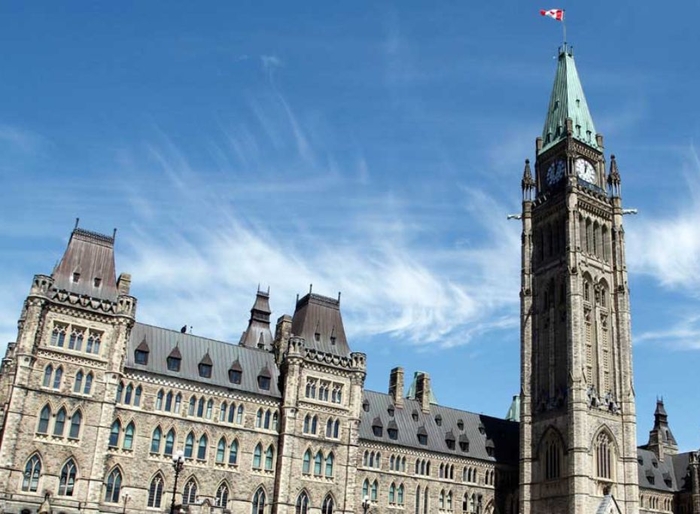Government introduces legislation to counter foreign interference
The Honourable Dominic LeBlanc, Minister of Public Safety, Democratic Institutions and Intergovernmental Affairs, and the Honourable Arif Virani, Minister of Justice and Attorney General of Canada, announced the introduction Bill C-70, An Act respecting countering foreign interference.
Bill C-70 proposes to update existing laws to better equip the government to detect, disrupt, and protect against foreign interference threats against all people in Canada, including members of diaspora, marginalized or otherwise vulnerable communities. This includes proposed changes to the Security of Information Act, the modernization of the 40-year-old Canadian Security Intelligence Service Act, and the sabotage offence in the Criminal Code. It also proposes amendments to the Canada Evidence Act to establish a standardized and streamlined regime for handling sensitive information in administrative proceedings in the Federal Court of Canada.
The CSIS Act is old and predates the modern internet. Amendments would address growing gaps caused by evolving threats and technological advancements Safeguards have been built in and are strong – the legislation was developed to ensure that CSIS activities comply with the Charter of Rights and Freedoms. Proposed warrant powers, while new to the CSIS Act, are not new tools; they are modelled on powers routinely relied on by Canadian law enforcement and intelligence agencies in other democracies. The threshold for accessing these tools is still high.
This bill also introduces the Foreign Influence Transparency and Accountability Act (FITAA), which creates a Foreign Influence Transparency Registry. Overseen by an independent Foreign Influence Transparency Commissioner, the Registry would promote transparency from people who advocate on behalf of a foreign principal (including a foreign state or state-owned business) and accountability from those who would do so in non-transparent ways. Under this proposed framework, individuals or entities who enter into an arrangement with a foreign principal and undertake activities to influence a government or political process in Canada would be required to publicly register these activities.
This legislation has been informed by the input received during the public consultations on foreign interference to ensure that it aligns with our national values, captures a wide range of expertise, perspectives, views and opinions, and respects Canadian fundamental rights and freedoms, including those protected by the Charter of Rights and Freedoms.
The Government of Canada is committed to protecting Canada and its residents from the threat of foreign interference, and to enhancing our collective resilience against malign foreign influence. This is an issue that impacts all aspects of society – and the government will continue to work with all partners, including provinces, territories, municipalities and Indigenous governments and partners, affected communities, academia and civil society, to collectively address foreign interference. This legislation will better enable the Government to detect, investigate, provide advice and get at the root source of foreign interference by enabling stronger enforcement.
Together, we can better protect Canadian values, principles, rights and freedoms from those who seek to harm them.
"Our government has been clear – we will not tolerate any form of malign foreign influence on Canadian soil. An Act Respecting Countering Foreign Interference will modernize our toolbox to protect our citizens and democracy while upholding Canadian values and principles."
- The Honourable Dominic LeBlanc, Minister of Public Safety, Democratic Institutions, and Intergovernmental Affairs
"Our government is taking action to protect all people in Canada, our institutions and our democracy from foreign interference. These reforms to criminal and national security laws are carefully crafted to tackle these threats in an appropriate, balanced, and fair manner."
- The Honourable Arif Virani, Minister of Justice and Attorney General of Canada
ADDITIONAL INFO
- Foreign interference includes harmful activities undertaken by foreign states, or those acting on its behalf, that are clandestine, deceptive, or involve a threat to any person to advance the strategic objectives of those states to the detriment of Canada's national interests. Foreign interference poses a threat to all levels of government, the private sector, academia, diaspora communities and the general public.
- In 2019, the Government of Canada announced the Plan to Protect Canada's Democracy. Measures introduced as part of the Plan include the Critical Election Incident Public Protocol (CEIPP), the Security and Intelligence Threats to Elections (SITE) Task Force, the Digital Citizen Initiative, the G7 Rapid Response Mechanism and the Canada Declaration on Election Integrity Online. The Government is committed to continuously improving its defenses, including elements of the Plan, to ensure Canada remains best protected.
- On March 6, 2023, the Government of Canada announced a series of measures to take further action on foreign interference and strengthen the public's confidence in our democracy.
- From March 10 to May 9, 2023, the Government held public consultations to guide the creation of a Foreign Influence Transparency Registry in Canada.
- On September 7, 2023, the Government of Canada launched the Foreign Interference Commission to respond to concerns about foreign interference in the 2019 and 2021 federal elections. The Commission is also examining the flow of information within the federal government in relation to these issues, evaluating the actions taken in response, assessing the federal government's capacity to detect, deter, and counter foreign interference, and will make recommendations on these issues. The Commission released its initial report on May 3, 2024, and will deliver its final report by December 31, 2024.
- From November 24, 2023 to February 2, 2024, the Government of Canada held additional public consultations that focused on potential legislative amendments to the Canadian Security Intelligence Service Act, the Criminal Code, the Security of Information Act and the Canada Evidence Act.
- Budget 2023 provides $48.9 million over three years starting in 2023-24 to the Royal Canadian Mounted Police to protect people in Canada from harassment and intimidation, increase its investigative capacity, and more proactively engage with communities at greater risk of being targeted, as well as $13.5 million over five years, starting in 2023-24, and $3.1 million ongoing to Public Safety Canada to establish a National Counter-Foreign Interference Office.







